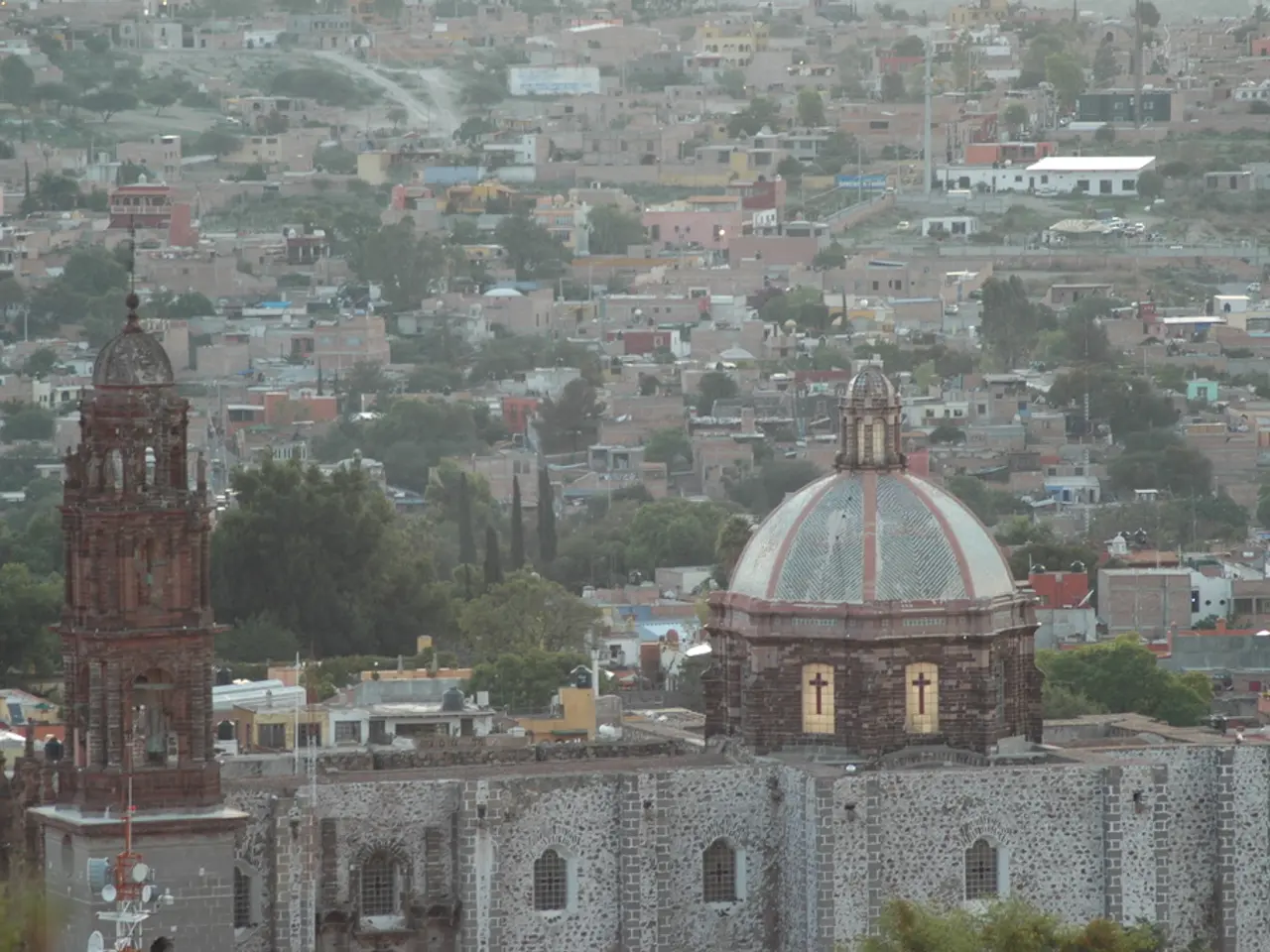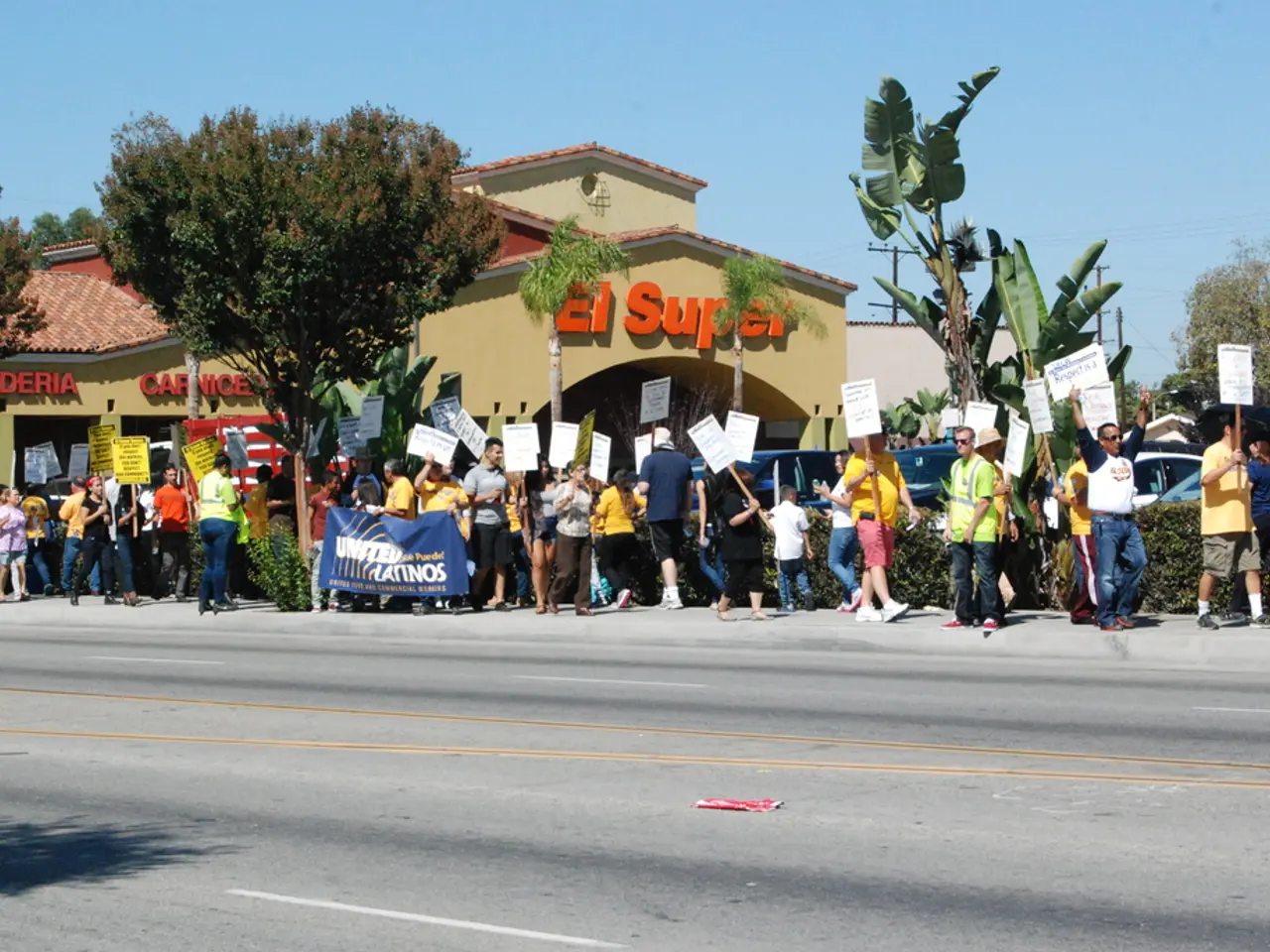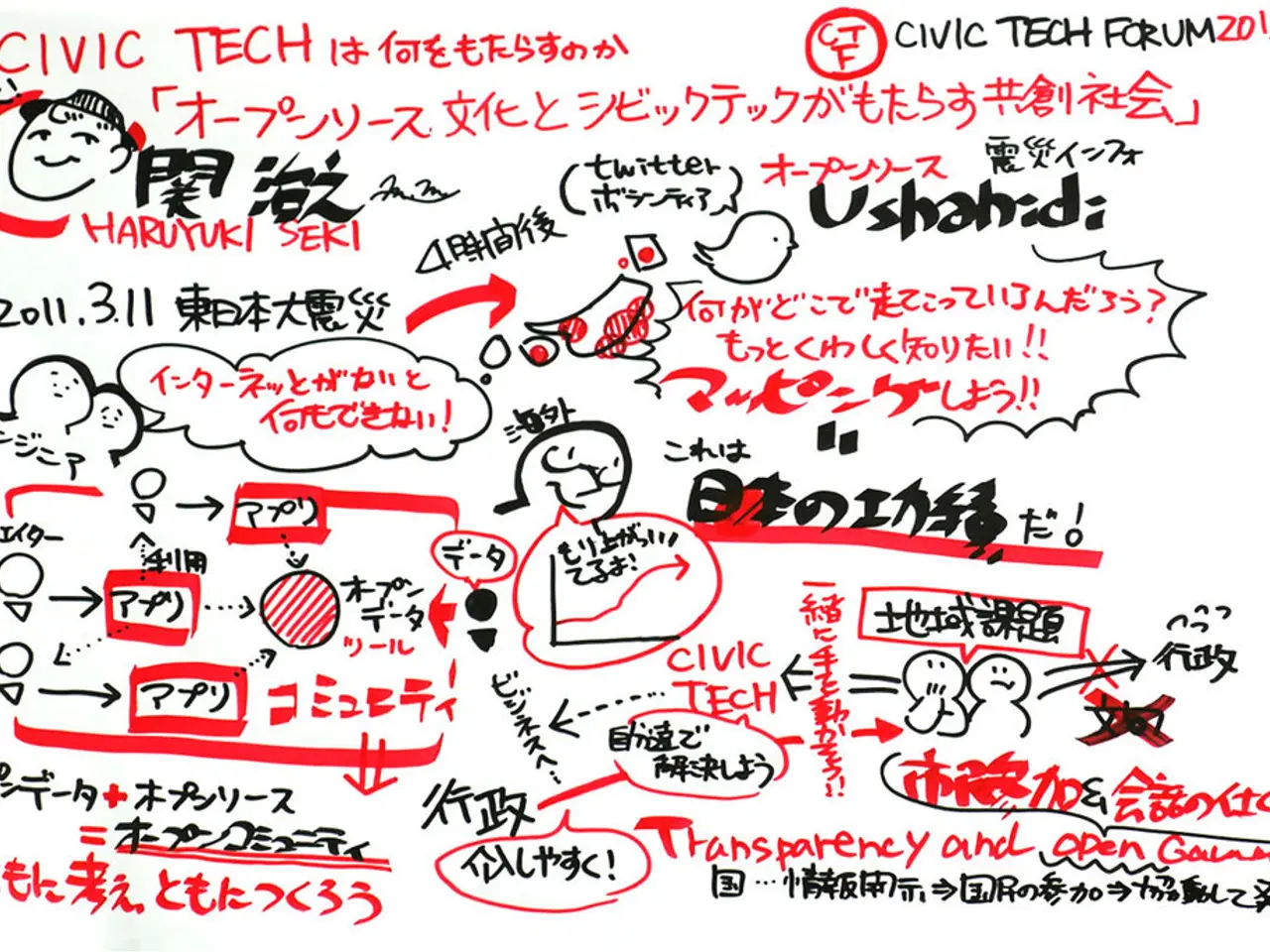Trump's Brazilian counterpart, Lula, declares that Trump is not given the role of global emperor, as the feud between the two nations intensifies.
In a surprising turn of events, President Donald Trump's announcement of a potential 50% tariff on Brazilian goods, set to take effect from August 1, 2025, has sent shockwaves through the international trade community. This decision, followed by the initiation of a Section 301 investigation by the Office of the United States Trade Representative (USTR), has led to a tense standoff between the two nations.
1. **Section 301 Investigation and Trump's Tariff Threat** On July 9, 2025, President Trump announced his intention to impose substantial tariffs on Brazilian goods. In response, the USTR launched a Section 301 investigation, focusing on digital trade, electronic payment services, preferential tariffs, anti-corruption enforcement, intellectual property protection, ethanol market access, and illegal deforestation in Brazil. A public hearing on this investigation is scheduled for September 3, 2025, with written comments due by August 18, 2025.
2. **Brazil's Reciprocal Tariff Vow and Negotiation Proposal** In response to the U.S. tariff threats, Brazilian President Lula vowed to impose a reciprocal 50% tariff on U.S.-origin goods if the U.S. follows through with its tariff plan. Despite this escalating trade confrontation, Brazil has actively sought to de-escalate the situation by formally proposing renewed trade negotiations with the United States. This initiative followed consultations with stakeholders in steel, aluminum, and other affected sectors.
3. **Current State of Negotiations** As of mid-July 2025, no new trade agreement or resolution has been finalized, but Brazil's request to reopen trade talks signals an intent to negotiate and possibly avoid a harmful trade war. However, the U.S. maintains the tariff threat and is moving forward with the Section 301 investigation as part of its strategy to address perceived unfair Brazilian trade practices.
In light of these developments, it appears that trade tensions remain high, with the U.S. preparing to impose heavy tariffs and investigating Brazil’s trade policies, while Brazil has responded with reciprocal tariff threats but also formally proposed reopening negotiations to resolve the dispute.
- Brazilian President Lula has stated that his country will not accept anything imposed on it. - The U.S., in 2024, exported more goods to Brazil than it imported, with top exports including aircraft and spacecraft, fuels, industrial machinery like nuclear reactors, and electrical equipment. - The spat between the two nations has been further complicated by the ongoing trial of Brazilian President Jair Bolsonaro, who is facing allegations of attempting to overthrow Lula following his presidential win in 2022. If found guilty, Bolsonaro could face more than four decades behind bars.
As the situation unfolds, both nations will need to navigate this complex web of trade disputes, political tensions, and legal proceedings to find a resolution that maintains economic stability and preserves diplomatic relations.
- As the tension between the United States and Brazil escalates, the World trade community closely monitors the progress of negotiations, with both nations vowing to protect their interests and maintain economic stability.
- Meanwhile, the Americans' focus on Brazil's digital trade, anti-corruption enforcement, and illegal deforestation practices has become a focal point of the ongoing Section 301 investigation and policy-and-legislation discussions, raising concerns about the wider implications for the Americas.
- In the midst of this standoff, general-news media outlets have reported on the political intrigue surrounding the trial of former Brazilian President Jair Bolsonaro, which could further impact the outcome of trade-and-conflicts resolutions and potentially strain relations between the two powers.








